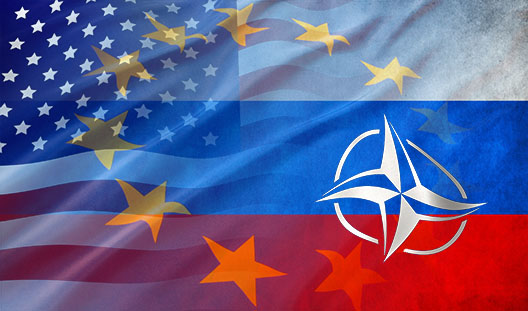 In the latest report from the Brent Scowcroft Center on International Security, entitled The United States, Russia, and Europe: Trilateral Security Dialogue in the Absence of Strategic Partnership, senior fellow Isabelle François explores the ways in which the United States and its allies must consider their relationship with Russia in the midst of new powers rising and new challenges emerging on the global stage.
In the latest report from the Brent Scowcroft Center on International Security, entitled The United States, Russia, and Europe: Trilateral Security Dialogue in the Absence of Strategic Partnership, senior fellow Isabelle François explores the ways in which the United States and its allies must consider their relationship with Russia in the midst of new powers rising and new challenges emerging on the global stage.
![]() Download PDF
Download PDF
The past twenty years have been marked by a series of setbacks and disappointments in the US-European-Russian dialogue, despite regular attempts to develop a strategic partnership. For the relationship among the United States, Europe, and Russia to develop in the long run, there must be a conscious political choice by the top leadership to engage and a readiness to address disagreements within national constituencies. The political expectations of the 1990s, when Russia and the West sought to influence each other’s decision-making processes, will have to be abandoned. Instead, the parties can work on the more modest short-term goal of establishing a transactional partnership on areas of common interests and resist regular attempts to close the values gap.
In this turbulent relationship, a strategy should provide a guide that helps manage expectations, hedges against unhelpful decisions, and mitigates the risks of disengagement. The strategy presented in this report rests on three pillars: transatlantic security, regional and transregional issues, and global challenges. In the short term, its seven operational goals focus the trilateral dialogue from the conceptual to the practical, spanning security issues such as the need to define common understanding on “Mutually Assured Stability” and regional focus from Afghanistan to the Asia-Pacific. Finally, among the key enablers, this report highlights the need to broaden human contacts beyond the United States, Russia, and Europe, and beyond the usual group of security experts that have dominated the trilateral dialogue for decades.
